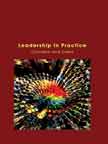Social Entrepreneurship - The Alicia Polak Way
|
|
ICMR HOME | Case Studies Collection
Case Details:
Case Code : LDEN045
Case Length : 10 Pages
Period : 2004-06
Pub Date : 2007
Teaching Note :Not Available
Organization : Khayelitsha Cookie Company
Industry : Food Products
Countries : South Africa
To download Social Entrepreneurship - The Alicia Polak Way case study
(Case Code: LDEN045) click on the button below, and select the case from the list of available cases:

Price:
For delivery in electronic format: Rs. 200;
For delivery through courier (within India): Rs. 200 + Shipping & Handling Charges extra
»
Leadership and Entrepreneurship Case Studies
» Case Studies Collection
» ICMR HOME
» Short Case Studies
» View Detailed Pricing Info
» How To Order This Case
» Business Case Studies
» Area Specific Case Studies
» Industry Wise Case Studies
» Company Wise Case Studies

Please note:
This case study was compiled from published sources, and is intended to be used as a basis for class discussion. It is not intended to illustrate either effective or ineffective handling of a management situation. Nor is it a primary information source.
Chat with us

Please leave your feedback

|
|




<< Previous
"Alicia Polak's idea was created in Africa and at the
moment is quite small, but we could grow the idea and if it works it can be
replicated in many other places."1
- Ian MacMillan, Director, Sol C. Snider Entrepreneurial
Research Center, Wharton School of Business, in 2006.
"It (Khayelitsha Cookie Company) is not making me any
money yet, but I still feel incredibly lucky at the end of my working day. And
not many people get to say that!"2
- Alicia Polak, Founder, The Khayelitsha Cookie Company, in
2006.
Introduction
|
In August 2006, Business 2.03 published a
list of '12 most intriguing business opportunities in the world.' In this list
was one of the opportunities of 'Becoming a social entrepreneur in South
Africa,' which referred to former Wall Street investment banker Alicia Polak (Polak)
and her venture Khayelitsha Cookie Company (KCC). The company was based in
Khayelitsha, a poor township in South Africa near Cape Town (Refer to Exhibit I
for the 12 most intriguing business opportunities in the world).
In the year 2004, Alicia Polak founded KCC, a company which sold its branded
cookies to several hotels and restaurants across South Africa.
|

|
KCC employed women from Khayelitsha to bake, pack, and sell the cookies. Polak
started KCC as a social entrepreneur, who wanted to make money out of this
venture and at the same time improve the lives of the poor women of the
township, who worked for the company. According to James Thompson
(Thompson), Associate Director of Wharton Entrepreneurial Programs, "You
might say, 'They're just cookies,' but she's teaching people skills in a
very poor area.
|
|
And there's no reason this brand can't be big in America and Europe."4
(Refer to Exhibit II for more information about Khayelitsha). KCC was a part
of Wharton's Societal Wealth generation program (SWGP), which was
established in early 2006 (Refer to Exhibit III for details of the Societal
Wealth Generation Program). The program aimed at addressing social problems
through entrepreneurial business models. The projects established under SWGP
included an animal feed project and healthcare projects in different
countries in Africa. According to Thompson, "That project is a microcosm of
what the Societal Wealth Generation Program - and the spirit of
entrepreneurialism - can accomplish."5 |
Social Entrepreneurship - The Alicia Polak Way
- Next Page>>
|
|










